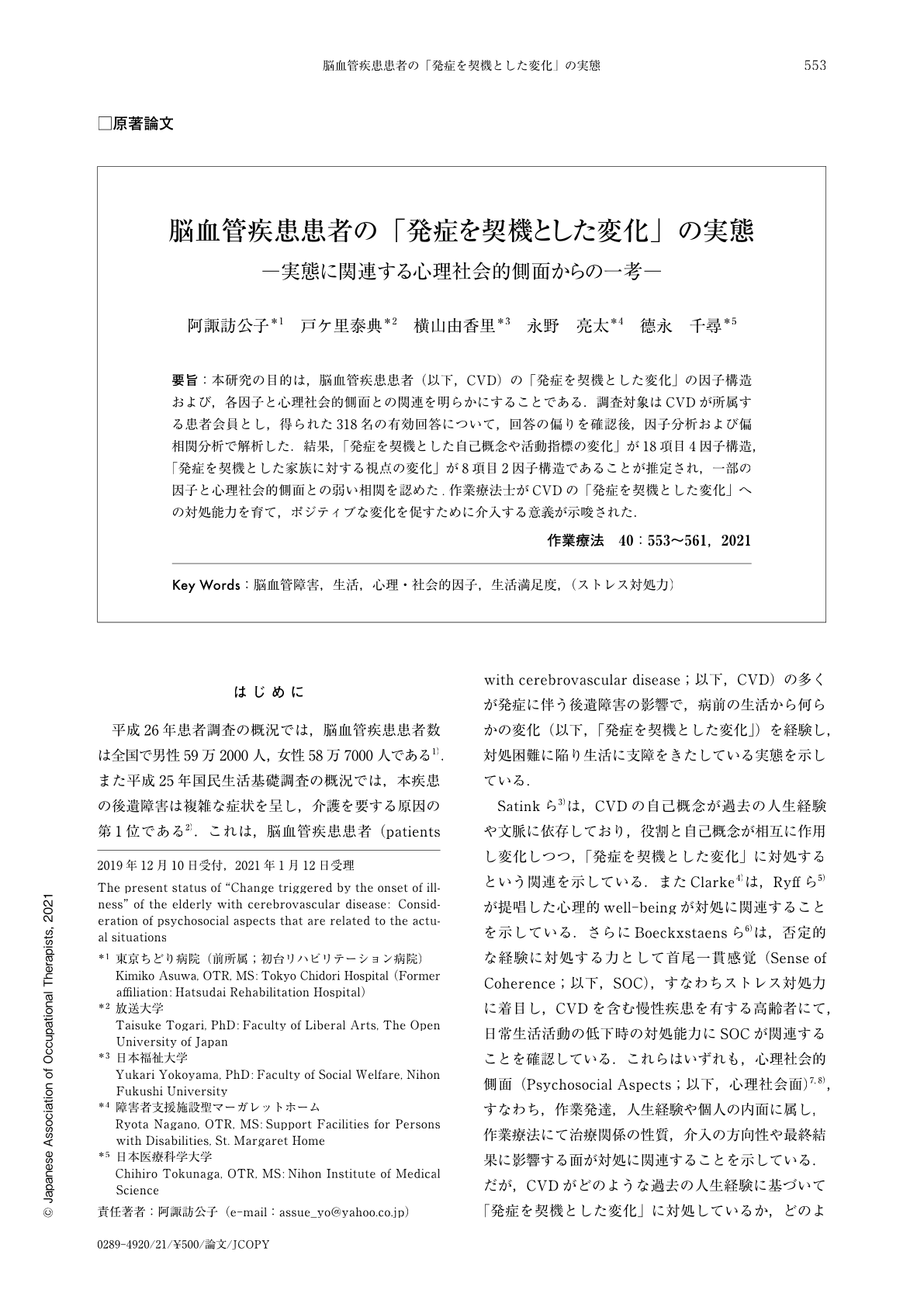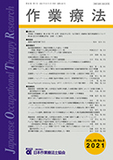Japanese
English
- 販売していません
- Abstract 文献概要
- 1ページ目 Look Inside
- 参考文献 Reference
要旨:本研究の目的は,脳血管疾患患者(以下,CVD)の「発症を契機とした変化」の因子構造および,各因子と心理社会的側面との関連を明らかにすることである.調査対象はCVDが所属する患者会員とし,得られた318名の有効回答について,回答の偏りを確認後,因子分析および偏相関分析で解析した.結果,「発症を契機とした自己概念や活動指標の変化」が18項目4因子構造,「発症を契機とした家族に対する視点の変化」が8項目2因子構造であることが推定され,一部の因子と心理社会的側面との弱い相関を認めた.作業療法士がCVDの「発症を契機とした変化」への対処能力を育て,ポジティブな変化を促すために介入する意義が示唆された.
This study examined the factor structures of “change triggered by the onset of illness” and the relationship between each factor and psychosocial aspects. The questionnaire items, which were based on semi-structured interviews, were sent to 654 “elderly with cerebrovascular disease” (CVD). We performed both factor and partial correlation analyses, and outcome indices were measured using the Sense of Coherence (SOC), Self-rated Health (SRH), and Physical Functioning scale (PF-10). As a result, 318 CVDs who answered all items were included. “Changes in self-concepts and activity indicator” was structured by 4 factors and 18 items, and the “perspective on family” was structured by 2 factors and 8 items. This resulted in a weak correlation between some factors and the psychosocial aspects SOC and SRH, suggesting that occupational therapists involved with CVD can promote positive changes of psychosocial aspects in order to develop coping abilities with “change triggered by the onset of illness.”

Copyright © 2021, Japanese Association of Occupational Therapists. All rights reserved.


